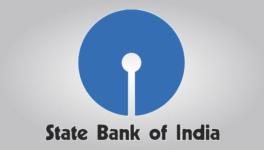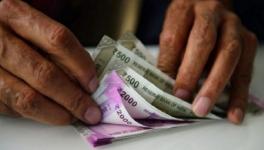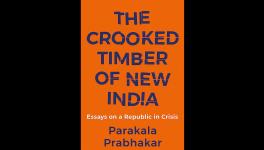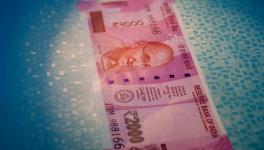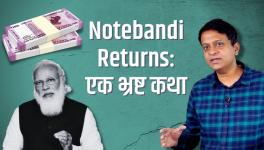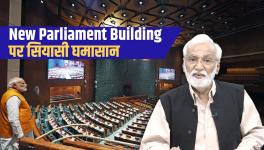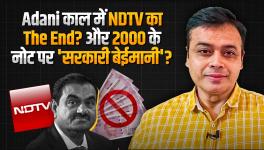Cashless Economy - A Ploy to Profit the Private Players
Newsclick, talked to Dr Usha Ramanathan, internationally recognized expert on law and poverty. She talks on demonetisation and the cashless economy. She draws a parallel between the UID project and the cashless agenda. Both of which, are built on the shoulders of the poor. While we eventually realise that when we talk about ‘cashless’, like the UID project, it is essentially about the technology companies creating their own businesses for themselves. Similarly, an element of eventual coercion can be attributed to both. Different kind of arrangements seem to be emerging, eg. between banks and mobile companies or payment gateways. Informal sector workers, the manufacturing sector and the agricultural sector, are going to be hit most, with this cashless project.
Rough Transcript:
Prabir: Hello and welcome to Newsclick. We have with us Dr. Usha Ramanathan and we are going to discuss what is being called the cashless economy, the less cash economy and so on. Usha you are the first one to actually flag this for us that this might not be just what the government is saying but the intention could be the demonetization of the notes could really be a move towards making it, “entirely digital economy.” How do you see this?
Usha: I think part of the reason it was clear to me, even before demonetization happened, that something was certainly going to happen in relation to a cashless economy is because I have been following the UID project quite closely and between 2014 and 2015 there was a hiatus except for pushing everyone onto the UID system. It wasn’t clear where it was headed but I think in the past seven-eight months especially it’s been perfectly clear that they were headed towards digitizing and brining in things like Fintech companies and disrupting the banking system so that the digitech companies would be able to take this over as an opportunity.
Prabir: Essential part of it is this cashless, presentless, etc.,etc. this is really according to you a precursor to try to move the entire economy to digital platforms and therefore also make it part of formal economy?
Usha: It’s interesting: both the UID project and this cashless project which is built on the UID project. As of now both these have common themes that we’ve been unraveling and one of those is that it’s built on the shoulders of the poor. We were told in the UID project that the poor don’t have an identity and therefore they need to have it as an you know to give the poor an identity but very soon we found that it wasn’t the identity that was being spoken about at all but an identity platform that had been created on which many apps could be developed .So the whole thing was creating opportunities for business, and that’s what we find here too. When they talked about cashless, it was about technology companies creating new businesses for themselves. The second common feature that we found was in the UID too it started off talking of being voluntary, very quickly it became coercive. When we look at the cashless, paperless basis of this and we look at the UID system, we find a repeat of certain of these patterns, so we knew that coercion would come some day in putting us on to the cashless system.
Prabir: So do you see that in fact it’s going to help the big industries, the organized sector, as against the informal sector which they have …they are in competition.
Usha: I understand that the informal sector means a certain something when we speak about it, really the informal sector. I’m not sure it’s a binary between the informal sector and large industry. I think there is a lot of this technology, the technology world is very happy with the idea of startups and outsourcing, that’s how they work. And you see the UID, the whole UID project was like that: started up, then they outsourced. Never mind what crap you get in that process, you build up a data base on that and then you worry about it later. What they are trying to replace it with a large number of startups which are technology oriented and which will be done to create monopolies. I ‘m not... it’s only going to be the large guys. The large guys are being told you better start functioning like the startup groups because that’s where we meet and there are different kinds of convergences that I see happening , for instance between mobile companies and banking companies; between payment gateways and banks. There are various kinds of arrangements that are emerging. GSTN for instance being handed over
Prabir: Can you say what the GSTN is?
Usha: GSTN is the Goods and Services Tax Network, there’s a lot of discussion that’s happened in public about the Goods and Services Tax and whether in the federal structure how do you locate it, how much taxation should be there. Very few people have talked about back offices. So the tag up committee report , the technology advisory report on unique projects came out in 2011 January with Mr. Nilenkani as chairperson had said how governmental data could be made into the data of private companies; how it would be handed over and they would then become naturally monopolies. And so the power of the state to gather data of various kinds would be used and then it would be handed over to these private companies set up for that purpose and then they would make profit out of it.
Prabir: One part of it is the new digital monopolies that will emerge as a direct beneficiary of getting into either the UID kind of infrastructure, the GSTN or in this case the cashless infrastructure. That’s one part of it. But there’s the other part of it, that there’s a whole informal sector which runs on cash. Now that sector, if everything is to be “ made digital” what happens to those people who are really running today cash economy and they are not black money, they are small people…
Usha: There are two kinds of people who get completely not talked about at all when they are talking cashless and it’s also interesting that those two are informal workers and the whole informal structure system and farmers. Actually agriculture is not even mentioned by those people. So I find…
Prabir: The GDP according to the economy, according to the government, it doesn’t seem to matter.
Usha: And the one that is recognized and being thrown out in this process is manufacturing as unimportant. There might be a little manufacturing here and there, it’s only services. Now this is the imagination of a government. This is the imagination of a certain sect of industries, a certain sect of businesses. So that business interest is what is pushing this imagination.
Prabir: Completely with you when you say, well all this has happened: the existing payment gateways, the banks etc., etc. and this whole infrastructure is being created for Fintech companies. No issues on that. But when you talk of demonetization, it’s not the small group of Mr.Nilenkani who can demonetize the economy.
Usha: No, no, no that I agree.
Prabir: It’s really something else, move “the government” imagination will: that is really to do away with cash for XYZ reasons or to move the informal economy and really move it into formal channels.
Usha: Let me just make a distinction between demonetization and cashless. Demonetization has provided an opportunity for cashless. I am not sure demonetization was done only for cashless. Mr. Modi’s imagination has… what, why I make the connection is not that the UID team has asked for demonetization but they have been building up their, I just mentioned…
Prabir: They are the beneficiaries of demonetization, probably the bigger beneficiaries.
Usha: I’m not even sure of that and I’ll tell you why in a minute, to mention a third institution, it’s called the ICESPURT and this is a round table of software professionals, software industry people and they’ve been hosting the India stack. They call themselves volunteers who are just creating this and evangelizing it back to government. So what we do is that over a period of time, the idea of cashless, paperless, presenceless has been taken into the government. And there is like the TAGA proposals a partnership between the government and business. So they were moving towards this but if you hear what the UID people were saying before, they were expecting this to happen between three and five years by adoption of many of these systems. So that you move towards definitely a less cash economy but with a clear intention that it should be done in such a way that we leave digital footprints everywhere and that they can convert our data into cash.
Prabir: I agree.
Usha: Mr. Modi’s agenda in bringing in demonetization was different from his introduction of cashless. Because this preparation had been done, I don’t think he got his timing right on cashless.
Prabir: I’m reminded of the emergency. As you would also remember at that time it was nasbandi and there were a lot of people, people who would say that family planning should be done, who were happy that it was being done. I find those who were evangelizing family planning in those days and went along with nasbandi are very similar to the people you are talking about. Ok this may not be the best thing, it’s still an opportunity. There are costs how does it matter, it’s something going. So I do really see notebandi and nasbandi in some sense close parallels.
Usha: There’s a definite parallel. But there’s an additional thing here is this thing of the panoptican beyond the prison. See what this digital does and which is why I think Mr. Modi is so happy to adopt it, is that it is not only businesses who get access to all this information. Think about it people keep saying that privacy is no great shakes but let’s not forget that it is in the context of these kinds of projects that the government has gone to the courts and said, people in this country don’t have a right to privacy. Forget about fundamental right, they’ve said we don’t have a right to privacy. What are they asking us to do now? They are saying make everything you do, make it leave a footprint, we should be able to track what you are doing because if you don’t let us do it, it means there is something criminal about you. And we are coming at a mid-way term now so demonetization. I think one of the major reasons that they did it , that is Mr. Modi did it was to try and paralyze all his political opponents, many of whom I think sure had cash which they could not have disposed off within that time. It will take a long time for them to recoup. That’s the expectation. And I certainly think that was one of the political reasons why that was done. But I think there is also this need at this point to collect as much data as he can of individuals, businesses across the country but by the time the next election comes in. So II think he did it opportunistically now but I also think, I don’t think he understands enough for him to know what a big mistake he has made. Demonetization is not the only mistake. This is a far bigger mistake , he would have to pay a far bigger price for this one.
Prabir: Well final point here is we have lost our right to our own money. That’s what really has been done at the moment.
Usha: You know if I can just make it a little more dire, I think this is the first time, you know because of the biometrics, large numbers of people are getting excluded from basics, you know even things like rations and pensions. Rajasthan has provided so many examples of the kind. People are dying. We are not noticing it because they are dying far away from us but those of us who have gone and seen know they are dying. Now in demonetization you’ve actually seen them die. It shocks me and I don’t know, I’m old enough not to be shocked by these things, but obviously I’m not. It shocks me that even death doesn’t stop people from being glib about policies like this. What is ultimately going to matter? Freedom doesn’t matter, liberty doesn’t matter, civil liberties are all useless, life doesn’t matter today. That’s the point we’ve reached and that’s a scary place to be in for any, forget democracy, for any society.
Prabir: Thank you very much Usha, we’ll come back to you for discussions on the UID, Rajasthan and biometrics another time. I think that’s an issue we need to discuss as well. This is all the time we have today in Newsclick. Do watch other episodes of Newsclick, come to our website and also see our face book page.
Get the latest reports & analysis with people's perspective on Protests, movements & deep analytical videos, discussions of the current affairs in your Telegram app. Subscribe to NewsClick's Telegram channel & get Real-Time updates on stories, as they get published on our website.











